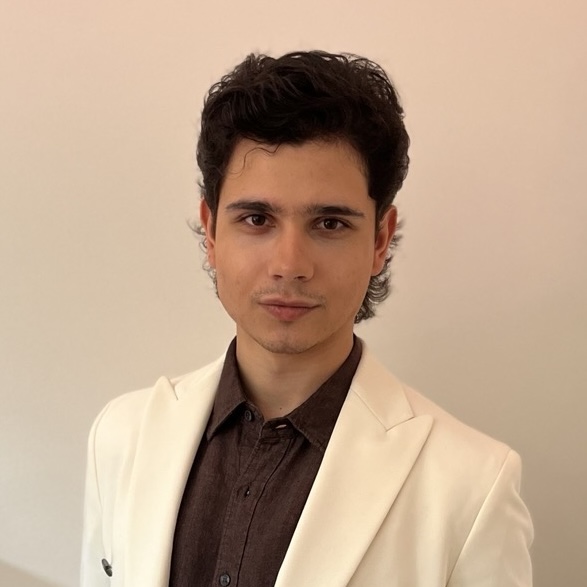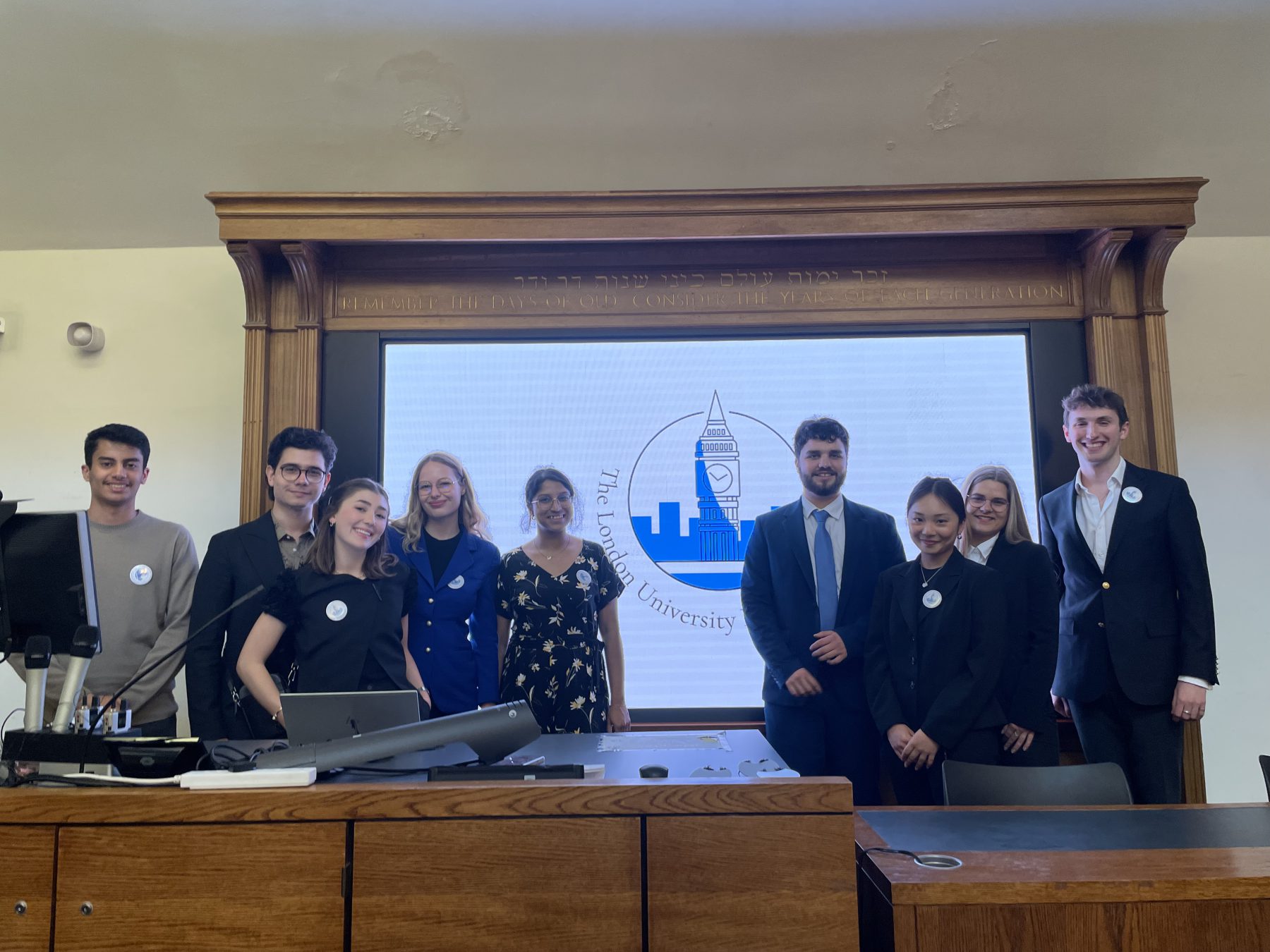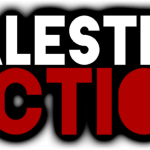Decolonisation – challenging and undoing deep-rooted power structures and promoting marginalised voices to forge a more equitable and just global order – was a pivotal theme of the London University Diplomatic Summit on June 2 to 4.
The summit convened esteemed academics and experts to examine pressing issues in the realm of international relations including a comprehensive effort to dismantle power dynamics, ideologies, and structures rooted in colonialism.
It was organised by societies from institutions such as Oxford University, University College London, London School of Economics, and King’s College London, and catered to students seeking to enhance their understanding of complex geopolitical issues.
AEJ member Ches Stupak has this report – noting Russia’s current invasion of Ukraine is an example that colonisation is still with us.
Re-thinking what “Decolonisation” Really Means
26 June 2023

By Vyacheslav (Ches) Stupak, AEJ member, President of the UCL International Relations Society, undergraduate
of politics and international relations at University College, London
A major focus during the summit was on the Western legacy of colonisation, which started during the Age of Discovery when the European empires “discovered” and sought to capture foreign lands.
I was struck by a British former diplomat, Charles Crawford’s, observation that colonialism does not have one “oppressor” nation. This assertion seems to open up new ways of seeing the issue. When you search for the term “coloniser” on the internet, the first images that appear are of European explorers in hats adorned with plumes in elaborate garments carrying muskets. This begs the question: does a view of colonisation centred on the West limit our ability to uncover and understand the narratives connected to power dynamics in other parts of the world?
It seems to me that it is imperative to broaden the scope of the concept of decolonisation beyond the usual West-centric focus and towards other parts of the world. By doing so, we can unearth lesser-known narratives and shed light on the fundamental processes underlying today’s heated debates.
In my home city of Toronto, Canada, actions aimed at erasing and fighting colonial legacies have attracted a good deal of support and public attention in recent years. Notably, on the West Coast indigenous movements like the Wet’suwet’en protests in British Columbia advocate for the protection of aboriginal land and resist projects such as the Coastal GasLinks, Pacific Trail, and Northern Gateway pipelines. These projects by companies such as Chevron, TransCanada, and Enbridge are intended to carry natural gas to and from the province, putting the land and people of the Wet’suwet’en Nation at risk.
On the East Coast, concerns have focused on the legacy of Egerton Ryerson, one of the main architects of the mandatory residential school system that “re-educated” indigenous youth. Specifically, activists toppled Ryerson’s statue during a decolonisation rally in Toronto which became a symbol of resistance against Canada’s colonial past. Ryerson University changed its name to the Toronto Metropolitan University to distance itself from the founder of a system which forced indigenous students to convert to Christianity and educated them separately to assimilate them into Euro-Canadian culture. Other campaigns have been directed at renaming institutions bearing the name of Sir John A. Macdonald, Canada’s first Prime Minister who introduced the residential school system. The Sir John A. Macdonald School in the city of Pickering was renamed after Biidassige Mandamin, a female Indigenous leader. So it is apparent that a collective desire to reckon with and transcend our colonial history has taken root in Canada.
Other countries have also taken steps to make post-colonial restitutions and acknowledge past wrongs. For example, 21 cultural artefacts called the Benin bronzes that were looted 125 years ago have been handed over by Germany to Nigeria. This represents a change in Germany’s international cultural policy. In the United Kingdom, the Rhodes-Must-Fall protests, the dumping of 17th century slave trader Edward Colson’s statue in Bristol harbour, and demands to return stolen artefacts from museums all show a desire to move beyond colonial legacies.
Some conservatives challenge this view. They argue that decolonisation supporters are ignoring the principles of a liberal, open society that tolerates freedom of speech and expression by failing to acknowledge historical realities of which they do not approve. Notably Lord Chris Patten, Chancellor of the University of Oxford, criticised the students involved in the much-publicised campaign to remove a statue of Cecil Rhodes. He asserted that students must be prepared to embrace freedom of thought or “think about being educated elsewhere.” In Canada, Erin O’Toole, former leader of the Conservative Party, opposed renaming institutions and instead proposed using Yale University’s guiding principles when deciding whether something should be renamed. Those principles involve scrutinising the legacy of the historical figure, considering how controversial their views were at the time, evaluating the reasons behind honouring the figure, and assessing what part the figure played in shaping the surrounding community. O’Toole asserts that according to this framework the justification for name changes falls short, and consequently they should not have occurred in Canada.
Against that, decolonisation supporters say they are not asking for history to be censored but for people to realise that a statue, like colonialism itself, is not only something in the past but is a present symbol of imperial legacies. At the “summit” the growing demand for decolonial activism in academic spaces was elucidated by Michael Cox, the founder of LSE Ideas, who highlighted what he called the “epistemic” dimension. This means re-thinking how we order and interpret the facts needed to understand the issues around decolonisation. This way of thinking involves dismantling the perceived hegemony of Western knowledge systems and paying closer attention to other, historically marginalised voices. Believers in this approach prioritise strategies such as critiquing power structures, promoting the reclamation of cultural artefacts, organising group protests, and advocating for institutional reforms. Of course, renaming buildings will not by itself expunge the remnants of colonialism, but it can be a crucial step in pushing for greater historical awareness and important policy changes.
Although we cannot change history we can learn from it. The abhorrent residential school system that removed and isolated Indigenous children from their homes and assimilated them into the dominant Western culture serves as a haunting reminder of how unchecked power could ravage the entire nation of Aboriginal people. In the past two decades, Canada and the international community have taken steps to establish frameworks to protect marginalised communities from such discriminatory treatment. Specifically, the 2007 United Nations Declaration on the Rights of Indigenous Peoples was adopted to protect individuals and their communities. The Declaration covers significant aspects of decolonisation, including a prohibition on the forced removal of children, protection of archaeological and historical sites, and repatriation of ceremonial objects and human remains. It emphasises the rights of people to provide education in their language as well as legal recognition of traditional lands and resources.
These international regulations are not easily enforced but they represent a significant step towards acknowledging and redressing colonial legacies. However, in today’s world, some governments continue to behave in neo-colonial ways. A prime example is Russia’s unprovoked aggression against Ukraine, which stands as a stark example of colonial ideology in action and a flagrant violation of international law. As a Canadian with Ukrainian parentage, I see disturbing parallels between the treatment of indigenous groups by European colonial powers during the Age of Discovery and Russia’s barbaric actions against the Ukrainian people today. The Kremlin regime has forcibly deported tens of thousands of Ukrainian children and is seeking to erase their identity by educating them with the propaganda of hatred towards their native culture. The Russian army has destroyed prominent cultural landmarks and pillaged historical artefacts from museums to take back to Russia.
Much as in past centuries, the Russian government refuses to acknowledge the distinct nationality of the Ukrainian people and asserts baseless claims over their lands and resources. For that reason, Russia’s brutal – and some say genocidal – war of conquest against Ukraine is a test of the will of the international community to resist Russia’s colonial aggression and uphold the principles of the rule of law and national sovereignty.
Understanding that colonisation is something that is still going on in our own day shifts the West-centric narrative. It illuminates the fact that decolonisation is a global phenomenon transcending time and geography, and encompassing the experiences of diverse communities worldwide. If we look at Russia and its “near abroad” through the lens of colonialism, we see a regime with imperialist ambitions. Just like the oppressors of the past, Russia’s actions in Chechnya, Syria, and now in Ukraine consist of mass killing, torture, and destruction which seek to eradicate other cultures in pursuit of imperial ambitions. However, history teaches us that every power with imperialist ambitions faces a time when the subject peoples refuse to remain under its hegemony.
By this way of thinking, if Russia’s ambitions are subdued by its defeat in Ukraine, a process of decolonisation could at last begin in the former Soviet space. In an optimistic scenario, this would involve a peaceful diminution of power exercised by the Kremlin, and in time the self-determination of numerous oppressed ethnic nationalities. This could be akin to the dissolution of the USSR in 1991, which separated into 15 sovereign states. However, it is hard to imagine such a momentous change occurring in the largest country in the world without major convulsions and new conflicts. It is also a moot point whether Western nations and the United Nations as a whole would be willing to support bids for independence by would-be new states on the territory of the Russian Federation if that issue were to arise.
Crucially, this underscores that decolonisation as a global movement does not emanate from a single actor, whether in the West or the East. Instead, it represents a call for equal treatment and a fundamental transformation in how people relate to one another. By understanding colonialism as a framework of hierarchies and exploitation beyond the West-centric paradigm, decolonisation becomes the process of recovering the genuine agency of populations which have in many cases long been repressed. That transcends the mere re-framing of the conversation and becomes a movement dedicated to empowering historically marginalised groups.
In the United Kingdom and other Western nations, this empowerment will come by revising and limiting pernicious colonial legacies through enhanced public awareness. A lively debate in this country has also opened up the prospect of ground-breaking decisions that take account in material ways of a recognition that past histories of domination and exploitation gave rise to Britain’s present wealth and global status. In the case of Ukraine, the Russian state’s demonic hatred and unrestrained military aggression have already served to unite the Ukrainian nation as never before. It has also revealed the true character of the Putin regime to all who have eyes to see. But for Ukraine to truly achieve its emancipation and shake off the legacy of its subject past, it will need consistent international support and victory on the ground.
For me, perhaps the most important takeaway from the London University Diplomatic Summit is an understanding that each one of us bears a responsibility to think deeply about what is at stake in this debate about decolonisation and self-determination. As Martin Luther King Jr. said, “he who passively accepts evil is as much involved in it as he who helps to perpetrate it.”








